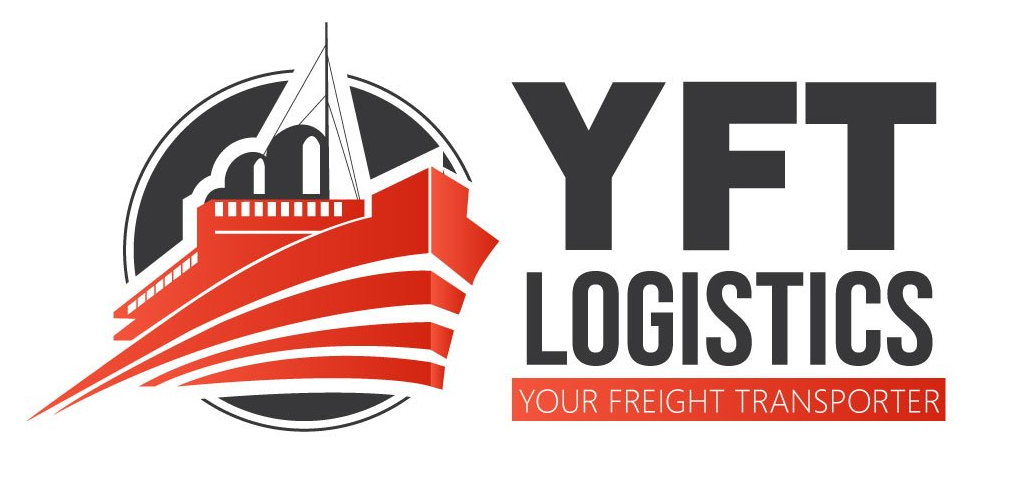ਕਸਟਮ ਕਲੀਅਰੈਂਸ ਯੂਕੇ ਸਾਊਥੈਂਪਟਨ - ਫੇਲਿਕਸਟੋ - ਲੰਡਨ ਗੇਟਵੇ - ਡੋਵਰ
Contactਹਵਾਈ ਅਤੇ ਸਮੁੰਦਰੀ ਮਾਲ ਕਸਟਮ ਕਲੀਅਰੈਂਸ ਸਾਰੀਆਂ ਬੰਦਰਗਾਹਾਂ ਨੂੰ ਕਵਰ ਕੀਤਾ ਗਿਆ
YFT ਲੌਜਿਸਟਿਕਸ ਵਿਖੇ ਸਾਡੀ ਕਸਟਮ ਕਲੀਅਰੈਂਸ ਟੀਮ ਤਣਾਅ-ਮੁਕਤ ਕਸਟਮ ਕਲੀਅਰੈਂਸ ਅਨੁਭਵ ਲਈ ਇੱਕ ਮੁਸ਼ਕਲ ਰਹਿਤ ਸੇਵਾ ਵਿੱਚ ਤੁਹਾਡੀ ਮਦਦ ਕਰਨ 'ਤੇ ਮਾਣ ਮਹਿਸੂਸ ਕਰਦੀ ਹੈ। ਅਸੀਂ ਕਾਗਜ਼ੀ ਕਾਰਵਾਈ ਅਤੇ ਪ੍ਰਸ਼ਾਸਕ ਦਾ ਧਿਆਨ ਰੱਖਦੇ ਹਾਂ ਤਾਂ ਜੋ ਤੁਸੀਂ ਆਪਣੇ ਕਾਰੋਬਾਰ ਦੀ ਦੇਖਭਾਲ ਕਰ ਸਕੋ। ਹਾਲਾਂਕਿ ਸਾਊਥੈਮਪਟਨ ਦੀ ਬੰਦਰਗਾਹ ਦੇ ਨੇੜੇ ਸਥਿਤ, YFT ਲੌਜਿਸਟਿਕਸ ਵੀ ਦੇਸ਼ ਭਰ ਵਿੱਚ ਕਲੀਅਰੈਂਸਾਂ ਨੂੰ ਕਵਰ ਕਰ ਸਕਦੀ ਹੈ ਅਤੇ ਫੇਲਿਕਸਟੋ - ਲਿਵਰਪੂਲ ETC ਵਿਖੇ ਕਸਟਮ ਕਲੀਅਰੈਂਸ ਲਈ ਉਹੀ ਕੁਸ਼ਲ ਸੇਵਾ ਪ੍ਰਦਾਨ ਕਰ ਸਕਦੀ ਹੈ ਜਿਵੇਂ ਕਿ ਅਸੀਂ ਸਾਉਥੈਂਪਟਨ ਵਿੱਚ ਕਰ ਸਕਦੇ ਹਾਂ।
ਪੋਰਟਾਂ ਨੂੰ ਕਵਰ ਕੀਤਾ
ਅਸੀਂ ਦੋਵਾਂ ਲਈ ਕਸਟਮ ਕਲੀਅਰੈਂਸ ਦੀ ਪੇਸ਼ਕਸ਼ ਕਰਦੇ ਹਾਂ ਨਿੱਜੀ ਪ੍ਰਭਾਵ
ਅਤੇ ਵਪਾਰਕ ਸਮਾਨ। ਜੇਕਰ ਤੁਸੀਂ ਪ੍ਰਕਿਰਿਆ ਬਾਰੇ ਯਕੀਨੀ ਨਹੀਂ ਹੋ ਜਾਂ ਲੋੜਾਂ ਬਾਰੇ ਚਰਚਾ ਕਰਨਾ ਚਾਹੁੰਦੇ ਹੋ, ਤਾਂ ਫ਼ੋਨ ਚੁੱਕੋ ਅਤੇ ਹੁਣੇ ਕਾਲ ਕਰੋ ਜਾਂ ਸੰਪਰਕ ਫਾਰਮ ਦੀ ਵਰਤੋਂ ਕਰਕੇ ਇੱਕ ਸਵਾਲ ਈਮੇਲ ਕਰੋ।
ਸਾਉਥੈਂਪਟਨ ਦੀ ਬੰਦਰਗਾਹ ਦੂਰ ਪੂਰਬ ਤੋਂ ਆਉਣ ਵਾਲੇ FCL ਅਤੇ LCL ਖੇਪਾਂ ਲਈ ਇੱਕ ਪ੍ਰਮੁੱਖ ਬੰਦਰਗਾਹ ਹੈ ਅਤੇ ਉੱਤਰ ਅਮਰੀਕਾ. ਸਾਡੇ LCL ਕੰਟੇਨਰਾਂ ਨੂੰ ਸਾਉਥੈਂਪਟਨ ਵਿੱਚ ਸਾਡੇ ਰਿਸੀਵਿੰਗ ਡਿਪੂ ਵਿੱਚ ਤੋੜ ਦਿੱਤਾ ਜਾਂਦਾ ਹੈ ਅਤੇ ਸਾਡੇ ਗੋਦਾਮ ਤੋਂ ਸਿੱਧਾ ਵੰਡਿਆ ਜਾਂਦਾ ਹੈ। ਸਾਡੀਆਂ ਸਾਰੀਆਂ ਵਸਤਾਂ ਦੀ ਕਸਟਮ ਕਲੀਅਰੈਂਸ ਸਹੂਲਤ ਪਹਿਲਾਂ ਤੋਂ ਦਰਜ ਹੈ ਇਸ ਲਈ ਪਹੁੰਚਣ 'ਤੇ ਤੁਰੰਤ ਡਿਲੀਵਰੀ ਕੀਤੀ ਜਾ ਸਕਦੀ ਹੈ।
ਬ੍ਰੋਕਰੇਜ ਸੇਵਾਵਾਂ ਆਯਾਤ ਕਰੋ
- ਸਾਉਥੈਮਪਟਨ ਅਤੇ ਫੇਲਿਕਸਟੋ ਅਤੇ ਸਾਰੀਆਂ ਪ੍ਰਮੁੱਖ ਬੰਦਰਗਾਹਾਂ ਵਿੱਚ ਕਸਟਮ ਕਲੀਅਰੈਂਸ
- ਨਿੱਜੀ ਪ੍ਰਭਾਵ ਇੰਦਰਾਜ਼
- ਲਗਾਤਾਰ ਬਾਂਡ
- ਸਿੰਗਲ ਐਂਟਰੀ ਬਾਂਡ
- ਡਿਊਟੀ ਡਰਾਬੈਕ
- ਟਰੱਕਿੰਗ ਅਤੇ ਡਿਲੀਵਰੀ
- ਮਾਲ ਢੁਆਈ ਦਾ ਬੀਮਾ
- ਵੇਅਰਹਾਊਸਿੰਗ ਅਤੇ ਸਟੋਰੇਜ
- ਕਸਟਮ ਪ੍ਰੀਖਿਆਵਾਂ ਦਾ ਤਾਲਮੇਲ
- ਕਸਟਮ ਪਾਲਣਾ
- ਕੋਈ ਲੁਕਵੇਂ ਪੋਰਟ ਚਾਰਜ ਨਹੀਂ
- ਅਸੀਂ ਸਾਰੇ ਯੂਕੇ ਪੋਰਟਸ ਸਮੁੰਦਰ ਅਤੇ ਹਵਾ ਦੀ ਸੇਵਾ ਕਰਦੇ ਹਾਂ
ਸਾਨੂੰ ਸੇਵਾ ਲਈ ਸਾਡੀ ਸ਼ਾਨਦਾਰ ਪ੍ਰਤਿਸ਼ਠਾ 'ਤੇ ਮਾਣ ਹੈ
One of a freight forwarder’s main functions is to arrange customs clearance of goods crossing the frontier. Freight forwarders can do this themselves, or subcontract it to a company that specialises in customs broking.
To provide customs services, the freight forwarder needs to have sufficient funds available to handle the bonds and guarantees required for duty and taxes payments. He or she also needs specific software that can communicate with the HMRC central computer. Nearly all the HMRC functions are now electronic, and special software for reporting and payments is necessary.
Documentation is a requirement for customs clearance in any international trade and for moving goods. Well-ordered and accurate documents are essential for a freight forwarder and are required for a successful export order or import clearance and receipt of payment for delivery.
Each mode of transport will have its document of carriage, such as the:
•Air waybill – for air freight.
•Bill of lading – for sea freight.
•CMR consignment note – for road freight.
European Union
The basic customs law is harmonised across Europe within the European Union Customs Union. This includes customs duties and restrictions. Customs tax from €150. Additionally, see regulations of each member state.
For customs declarations in the EU and Switzerland, Norway and Iceland, the “Single Administrative Document” (SAD) is used as a basis.
To provide customs services, the freight forwarder needs to have sufficient funds available to handle the bonds and guarantees required for duty and taxes payments. He or she also needs specific software that can communicate with the HMRC central computer. Nearly all the HMRC functions are now electronic, and special software for reporting and payments is necessary.
Documentation is a requirement for customs clearance in any international trade and for moving goods. Well-ordered and accurate documents are essential for a freight forwarder and are required for a successful export order or import clearance and receipt of payment for delivery.
Each mode of transport will have its document of carriage, such as the:
•Air waybill – for air freight.
•Bill of lading – for sea freight.
•CMR consignment note – for road freight.
European Union
The basic customs law is harmonised across Europe within the European Union Customs Union. This includes customs duties and restrictions. Customs tax from €150. Additionally, see regulations of each member state.
For customs declarations in the EU and Switzerland, Norway and Iceland, the “Single Administrative Document” (SAD) is used as a basis.












